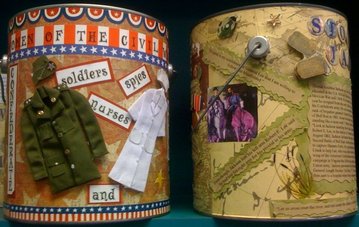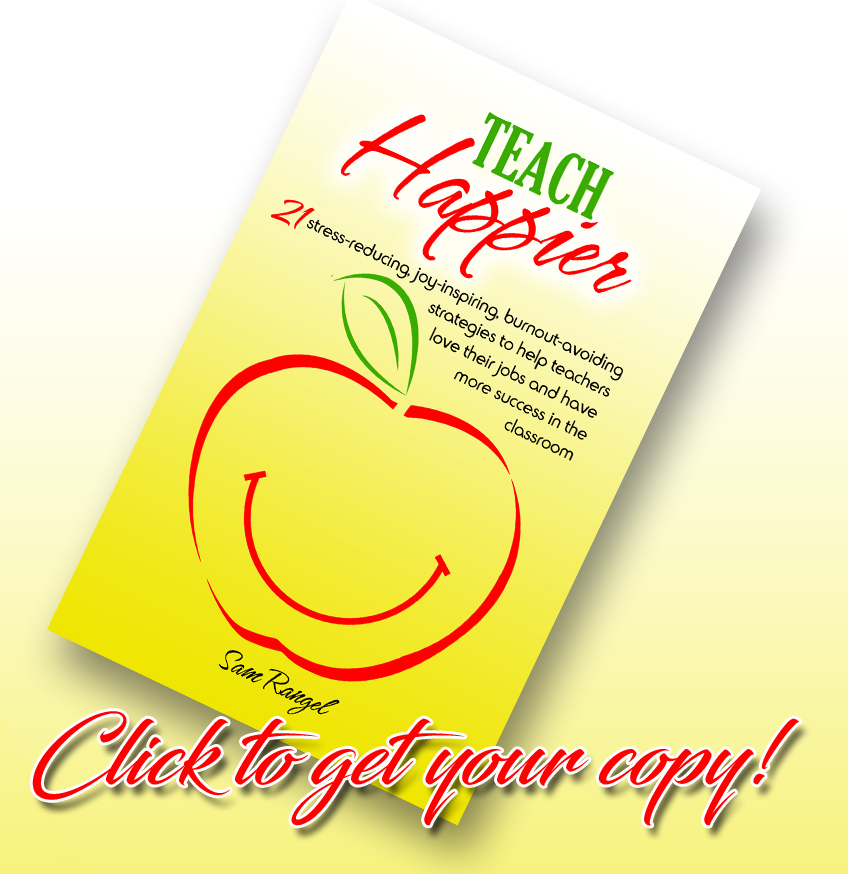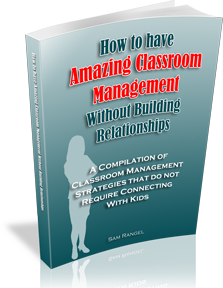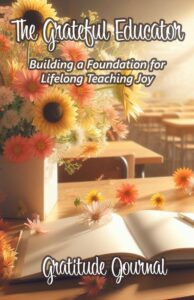
Hello again,
Today I wanted to share what I do when I have a big project.
Most teachers I know have a big project. It’s that one end of the year project that you prepare for all year long. Most of it is done at home, so you have little control over what your student is doing. Many times, the turn in day arrives, and too many students have nothing to turn in or what they have is poor quality (as if they did it in the car on the way to school). All of a sudden your students who were doing fine in class, now have a poor grade – all because their giant project was so bad. It will happen.
In my case, I have a Civil War in a Can project to finish out the year.
This is an idea that I stole from a colleague of mine. In a previous post, I mentioned how it was OK to steal ideas from other teachers. You can call it collaborating or sharing ideas or borrowing, whatever.
I used to assign a big research paper for my final project, and I remember how much I hated it.
Students would be given a topic on the Civil War. Then, they would do the research, and turn in a paper that I would have to grade. It was boring.
It was boring for the kids, and it was boring for me.
On top of everything, there were so many papers that were blatantly plagiarized, so I had to deal with that issue also.
I would offer extra credit if students wanted to read their paper in front of the class.
Boring. Boring. Boring.
Finally, I was passing by a Language Arts class during my prep period about 5 years ago, and I noticed that the room was full of decorated paint cans. I stopped and asked the teacher about it. She told me that the students created a can based on a book they were reading. Inside they put articles that represented the characters, plot, theme, ect. The can was then decorated to represent a scene or a character from the book.
It was cool.
I thought, maybe I could modify this lesson for History.
So I did.
For the last 5 years, I’ve been assigning the Civil War in a Can project to my 8th graders.
Basically, students are given a topic, researching that topic, decorating a can to represent the topic, then presenting their can in front of the class. They are required to become an expert on their particular topic and teach the class all about it.
The student will come up in front of the class with their decorated can. They will begin telling the class all about their topic. As they present, they are pulling out items from their can to help their presentation. For example, a student may have the topic of the Battle of Gettysburg. He/She will reach into the can and pull out a rock.
Then he/she will say, “This is a rock from the Battle of Gettysburg. It took place July 2nd to July 4th in 1863. The commander for the South was Robert E. Lee. For the North…..”
They can use any item they find to help them do this. I use the rock example, because students don’t have to buy a rock. They can go in their back yard and get a rock. I tell them that I’m not going to check to see if the rock is actually from the battle.
The whole point of the assignment is to get the student to become an expert in a particular topic.
They are not required to turn in any kind of document for me to grade. I grade them as they make their presentation. The main question I’m asking is if they are an expert on their topic or not. I already know what they should know about their topic, and if they don’t mention something in their presentation, I’ll ask them about it in my Questions From The Teacher part, just in case they’ve overlooked something during their presentation.
If I have no questions (which is rare), it’s a good sign. It means that the students has demonstrated that he/she is an expert. Kids feel proud when I say, “I’ve got no questions. Good job.”
All the students are required to present in front of the class. Other assignments do not have this requirement, but for this final project I make it part of the grade.
I don’t normally like to add stress to my students, but by this time in the year, they know each other better. They’re more comfortable making presentations, and we’ve done enough group presentations to make this requirement less stressful. Notice I said “less” stressful. Some students still panic, and for those, I allow them to make their presentation during lunch just to me. Most students, however, present with no problem. I’ve also spent the year drilling into their heads that my presenters are not to be disrespected in any way.
Stressing out the kids is the only major con in this assignment.
The pros are many:
1. I don’t get any more plagiarized papers. Students don’t turn in any paper or report. They are graded on their presentation.
2. I grade them on the spot.
3. I get to decorate my room with cool looking paint cans. (That could be a con also)
4. Students leave 8th grade being an expert in at least one topic of the Civil War.
5. I don’t have to read any more boring reports.
Here are some Big Project Tips that I’ve learned over the years:
1. Have a few pre-project assignments that confirm that the student is actually doing the research. I just passed out a Look What I Have So Far assignment, where the students give me a list of 10 facts and 2 quotes that they’ve found in their research.
2. Save some of your best examples from your previous years to show student what you expect.
3. Video some of your best presentations to show future classes. Don’t show the bad ones.
4. Tell the parents about the assignment. Post the directions online somewhere.
5. Remind the students daily about the big project due date. Post it on your wall. Include it in your emails to parents. Hire one of those planes that writes messages in the sky. Kids need constant reminders.
6. Make extra copies of the directions. Students will come to you a couple of days before it’s due, and ask you for them. Give them the procrastination lecture. I know you have one.
That’s enough. I’m sure there are more, so if you have any suggestions for Big Project Tips, please leave a comment.
Thanks again,
Sam



